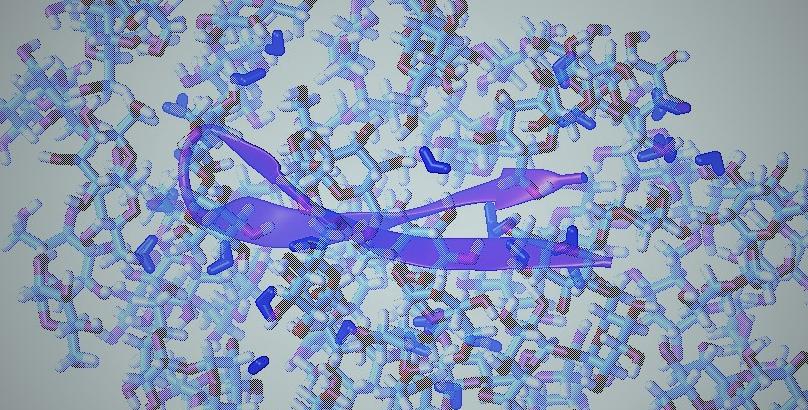Citation:
Abstract:
Solutes added to buffered solutions directly impact protein folding. Protein stabilization by cosolutes or crowders has been shown to be largely driven by protein–cosolute volume exclusion complemented by chemical and soft interactions. By contrast to previous studies that indicate the invariably destabilizing role of soft protein–sugar attractions, we show here that soft interactions with sugar cosolutes are protein-specific and can be stabilizing or destabilizing. We experimentally follow the folding of two model miniproteins that are only marginally stable but in the presence of sugars and polyols fold into representative and distinct secondary structures: β-hairpin or α-helix. Our mean-field model reveals that while protein–sugar excluded volume interactions have a similar stabilizing effect on both proteins, the soft interactions add a destabilizing contribution to one miniprotein but further stabilize the other. Using molecular dynamics simulations, we link the soft protein–cosolute interactions to the weakening of direct protein–water hydrogen bonding due to the presence of sugars. Although these weakened hydrogen bonds destabilize both the native and denatured states of the two proteins, the resulting contribution to the folding free energy can be positive or negative depending on the amino acid sequence. This study indicates that the significant variation between proteins in their soft interactions with sugar determines the specific response of different proteins, even to the same sugar.
Notes:


